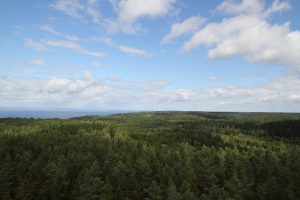21st of March is the International Day of Forests according to the UN. In 2012, the United Nations Assembly proclaimed this day to celebrate and raise awareness of the importance of all kinds of forests. It´s a good thing that should be noted. Everything that can make the public aware of our common need for the forest and its products is good. However, a quick look at the daily news reveals that it hasn’t been noted in that many places.
Photo: Per Jonsson
The International Day of Forests
No one working in the forest, or the forest industry must be convinced. We know what we are doing and what comes out of it. One of the major problems, if you ask me, is to convince the public that forestry is something that we all need. I don’t think that much of the public knows that they are a part of it. They don’t know how many forestry-related products they use daily.
So, days like this day should be celebrated and paid attention to. A quick look on the Internet shows very little interest in Europe or North America for this day. One of the places where it is noted in public media is in India. Of course, there could be other places, I haven’t seen them all.
How do we reach the public?
It seems to me that “the other side”, the green side, is much better at reaching the public. One reason could be that it’s easier to stand at the side and criticize. Criticizing is something you can do without carrying any responsibility of your own. The responsibility lies on the criticized part to defend itself or explain what’s going on.
But I get the impression that we use the wrong information whenever forestry representatives defend forestry. We use general terms like “we plant x new trees for every tree that we cut”, “the forest is carbon binding”, “the forest is important for jobs and economy”, “we have more forest now than ever before”, or “the forest is certified”. These examples are from Sweden, but I think similar explanations could be found also in other countries.
But does the public understand, and care about those arguments?
What are the alternatives?
I have touched on this subject before. Why not turn it around? Let´s say: “Ok, let’s stop cutting down trees. But what do we use instead?”
If you cut a tree, you will have a new one within 100 years in the northern hemisphere. Many will say: “That’s a very long time.” Is it? A spruce tree can be 300 years old, a pine 700 years, and an oak over 1000 … Are 100 years really that long?
And what about the alternatives? If you choose to use mineral-based materials like plastic, steel, or concrete; How long does it take for stone, gravel, or oil to grow back? Well, more than 1000 years anyway. Probably millions of years. And how much carbon do you let out in that process? That’s why the forest is called a renewable resource.
A matter of how to manage the forest
Many critics will say that it’s ok to cut down trees but not to manage the forest like we do today. Of course, there are different methods that could be used in forest management. One thing that is being discussed here is Sweden is “clear-cut-free” forestry. That is doable, but then another question pops up in my head; Are the users/the public prepared to pay more for that? Most likely the prices for lumber, cardboard, and tissue will go up if we can’t harvest the forest as efficiently as we do today. It’s a relevant question. But is the public aware of the connection?
The question still stands: How do we reach the public? It´s not easy. The risk that we make it sound like we are defending our bad habits is big. On the other hand, I’d like to think that the forest industry and the forestry together should have the financial power to hire the best communicators for this. Why don´t they? While we are waiting for that, we all can do something …
Let’s keep talking and start celebrating
I call on all forestry men and women to celebrate this day today. Go to your regular café, restaurant, pub, bar, or wherever you usually go and start annoying your non-forestry friends with those arguments. Convince them to the extent that they spread the message further like the rings on the water. I want to experience the day when forestry is completely politically correct!
Cheers to the forest!












